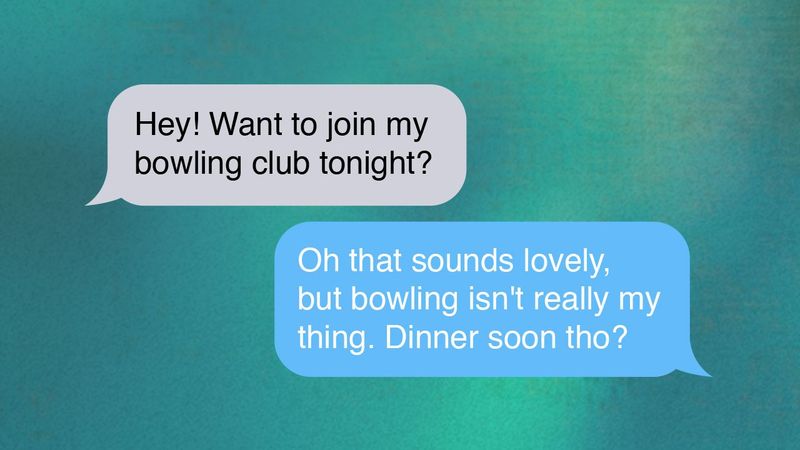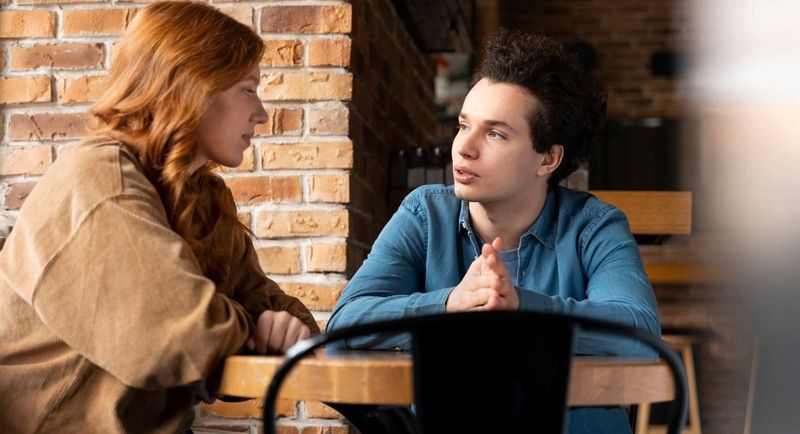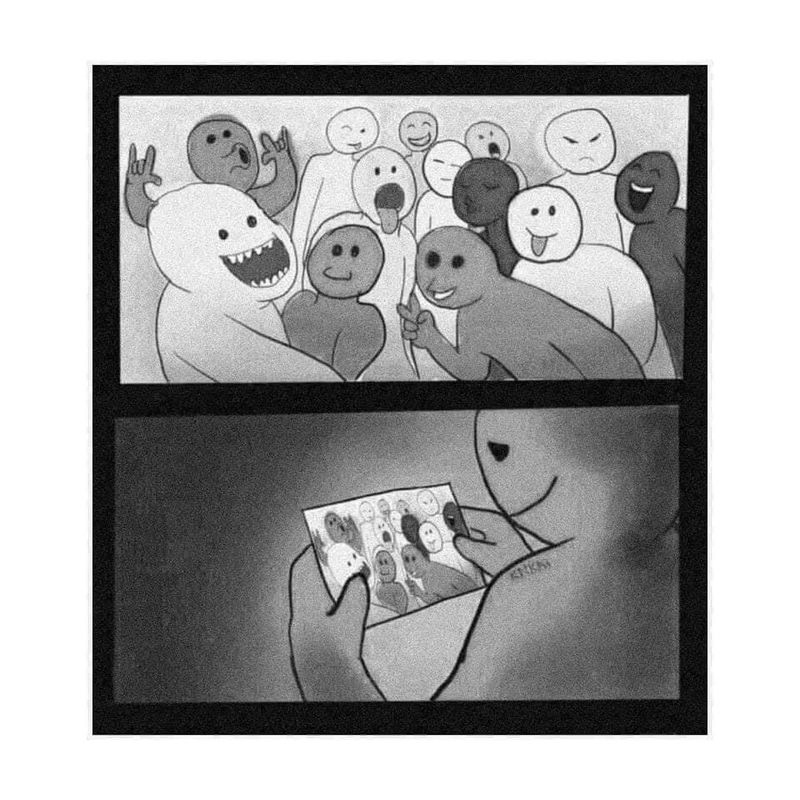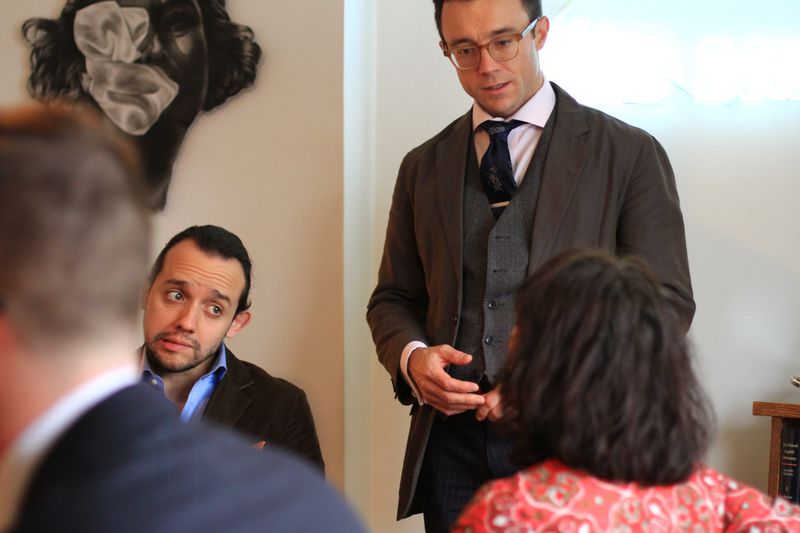17 Sad Truths About Outgrowing Your Friend Group
Friendship is a cherished aspect of life, but as we grow and change, sometimes our friend groups don’t change with us. Outgrowing friends is a natural, albeit painful, part of personal development. It can feel like shedding a skin or leaving behind a cherished chapter of your life.
In these moments, it’s important to reflect on what these relationships have taught us and to honor the growth that has brought us to this point.
Here are 17 sad truths about outgrowing your friend group, each a gentle reminder that while the past was sweet, the future holds new opportunities for connection and understanding.
1. You stop feeling excited when the group chat lights up

A buzzing phone used to be a source of excitement, a gateway to shared laughter and plans. Now, it feels more like an obligation than a joy. The group chat, once a lively tapestry of inside jokes and shared experiences, becomes a reminder of the widening gap between you and your friends.
It’s not that you don’t care anymore, but the thrill has waned, replaced by an echo of nostalgia. This change is a natural part of growing up, where priorities shift and the space once filled by constant chatter is now occupied by introspection and self-discovery.
2. Their jokes no longer land the way they used to

Humor is a shared language, and when that language changes, it can feel like losing a dialect. The jokes that once had you rolling with laughter now seem distant, like a song played slightly out of tune. This shift isn’t about losing your sense of humor, but about evolving tastes and perspectives.
As you grow, your sense of what is funny changes, and sometimes, what once connected you with your friends no longer resonates. It’s a poignant reminder of how personal growth can subtly alter the dynamics of relationships, sometimes leaving an echo of what used to be.
3. You censor yourself to avoid judgment

Self-censorship is a silent toll we pay for acceptance, but when it becomes a habit, it’s a sign of change. You find yourself holding back opinions or altering your behavior to avoid criticism. This isn’t about fear but about the growing understanding that your current self might not fit into the mold of old friendships.
It’s a realization that acceptance isn’t just about being liked, but about being understood. Outgrowing friends often involves recognizing when you’re compromising too much of yourself to keep the peace, a bittersweet acknowledgment of personal growth.
4. Their lifestyle choices now feel exhausting—not fun

The parties, late nights, and spontaneous adventures once felt exhilarating. Now, they seem draining and misaligned with your current values. This isn’t a critique of their choices but a reflection of your own changing priorities. What once was a symbol of camaraderie now feels like an energy-sapping obligation.
It’s not about losing your fun-loving spirit, but about redefining what fun means to you. As you mature, the need for meaningful interactions and self-care takes precedence over the familiar thrill of youthful escapades.
5. You start skipping invites without guilt

Declining invitations used to feel like missing out, a fear of being left behind. Now, it’s an act of self-care and honesty. The guilt that once accompanied saying ‘no’ has dissipated, replaced by a comforting sense of authenticity.
It’s not that you don’t value your friends, but you value your time and well-being more. This change signifies a deeper understanding of what you need and the courage to prioritize it. Sometimes, opting out is an act of love—towards yourself and the memories of the friendships that once flourished without effort.
6. Deep conversations are replaced with recycled small talk

Conversations that once delved into dreams and fears now skim over the surface, leaving you yearning for depth. Small talk, while comfortable, lacks the substance that once bonded you together. It’s as if the dialogue is on autopilot, echoing the past without the enriching connection that once defined it. This shift may not be intentional, but it marks a significant transition in how you relate to your friends. While small talk has its place, the absence of meaningful discussion highlights the growing emotional distance.
7. You realize your values aren’t aligned anymore

Values are the compass by which we navigate life, and when they shift, so too do our paths. Realizing that your core beliefs no longer align with those of your friend group can be disheartening. It’s not about right or wrong, but about different perspectives shaping different journeys.
This divergence might lead to fewer shared interests and more frequent disagreements. Honoring these differences without resentment allows for an acceptance that, while your paths may no longer run parallel, the memories shared are still cherished.
8. You feel lonelier in the group than when you’re alone

Loneliness in a crowd is a unique feeling, a silent reminder of the bonds that have subtly faded. It’s the paradox of being surrounded by friends yet feeling disconnected, a testament to the changing dynamics of relationships.
This loneliness isn’t about the absence of company but the absence of connection. It reflects the internal shift where solitude offers more peace than the company of those who no longer resonate with your current state of being. It’s a gentle nudge towards seeking environments and people who truly understand you.
9. You’re growing—but they only remember who you used to be

Growth is a personal journey, often unnoticed by those who hold onto memories. Friends who knew you ‘then’ might struggle to see who you are ‘now.’ This isn’t a fault but a natural consequence of evolution. While they cling to past versions, you embrace change and newfound perspectives.
This mismatch can create a sense of being misunderstood, as though trapped in a snapshot of time. Cherishing the past while moving forward requires grace, acknowledging that while your paths diverge, the shared history remains a cherished chapter in your life story.
10. You dread the emotional hangover after hanging out

What once recharged your spirit now leaves you drained, an emotional hangover that lingers after social gatherings. It’s the realization that the energy invested doesn’t return the way it used to. The laughter and chatter feel hollow, leaving you to wonder if the effort is worth the aftereffects.
This isn’t about the lack of affection but about recognizing when interactions deplete rather than enrich. Understanding this shift allows you to make choices that prioritize well-being over obligation, fostering environments where you feel uplifted rather than exhausted.
11. They keep score—you stopped playing

Friendship isn’t a competition, but when tallying favors and obligations becomes a norm, it can feel like one. This dynamic can be exhausting, especially when you’ve moved beyond keeping score. The realization that you no longer measure relationships by what is given or taken is a testament to your growth.
Your focus now lies on genuine connection and mutual understanding, rather than transactional interactions. This shift can create tension with those still entangled in the game, highlighting the divergent paths you’re on.
12. They mock what you love, even if it’s subtle

Passions define us, and when they are belittled, it can sting. Friends might not realize the impact their teasing has, but for you, it signifies a deeper disconnect. What you cherish and find joy in is no longer shared or respected. This subtle mockery isn’t about malice, but about growing apart in interests and values.
Recognizing this shift emphasizes the importance of surrounding yourself with those who celebrate your passions, not belittle them. Finding spaces where your interests are understood becomes a priority in your journey of self-discovery.
13. You’re met with silence when you need support

Support is the foundation of friendship, and its absence is deeply felt. When your calls for comfort and understanding are met with silence, it’s a stark reminder of the changes in your relationships. This isn’t about blame but about recognizing the emotional distance that has crept in.
The silence speaks volumes, echoing the need for connections that provide the support you seek. It’s a poignant realization that drives you to seek relationships where empathy and encouragement are mutual, rather than unfulfilled expectations.
14. The inside jokes now feel like inside circles

Inside jokes once symbolized belonging, a secret language of friendship. Now, they feel like barriers, excluding rather than including. This shift isn’t about losing humor, but about realizing the jokes no longer resonate with your current self.
Feeling outside the circle is a sign of growing apart, where shared laughter no longer bridges the gap. It’s a bittersweet reminder that while the jokes are the same, the context has changed, leaving you seeking connections that offer true inclusivity and shared understanding.
15. You spend more time explaining yourself than being yourself

Constantly explaining yourself can be exhausting, a sign that the understanding is fading. When you find yourself clarifying rather than connecting, it’s a reflection of how your paths have diverged. This isn’t about fault but about recognizing the need for relationships where you can be yourself without preamble.
The energy spent on explaining detracts from genuine interactions, highlighting the growing divide. Seeking spaces where you are accepted without explanation becomes essential, fostering relationships that embrace your evolution without question.
16. Nostalgia is the only thing holding it together

Nostalgia is a powerful glue, but when it’s all that binds a friendship, it can feel hollow. Memories are cherished, but they can’t sustain a relationship rooted only in the past. When the present offers little connection, nostalgia becomes a comforting but insufficient link.
Recognizing this truth isn’t about dismissing the past but about honoring it while acknowledging the need for current, meaningful interactions. The journey forward involves cherishing the memories while seeking relationships that thrive in the now.
17. You still love them—you just can’t grow there anymore

Love remains, but the space for growth has diminished. It’s a gentle realization that while the affection for your friends persists, the environment no longer nurtures your evolution. This isn’t about ending friendships but about shifting them, allowing room for both love and growth.
It’s a bittersweet acknowledgment that sometimes, the best way to honor a friendship is to let it evolve with grace. Embracing new paths doesn’t negate the love that once flourished; it simply allows for new chapters to be written with authenticity and hope.







